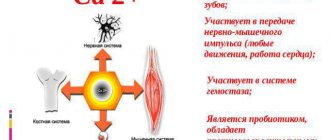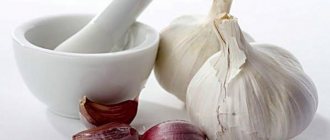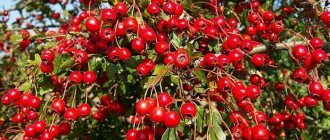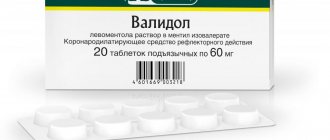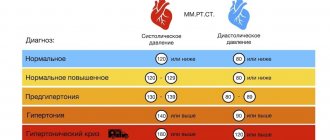Black tea is a drink that has long been loved by most people. Many people start their morning with it, drink tea throughout the day and before bed, adding dried fruits, berry leaves and other ingredients to the drink to improve its taste. But few people know how black tea affects blood pressure, and whether people with a tendency to hypertension can drink it without fear. In order not to give up black tea altogether, having heard plenty of beliefs about its dangers for people with high blood pressure (BP), you need to know about the beneficial properties of the drink, how to brew it and consume it.
Tea composition
The beneficial properties of the tea drink and the beneficial effects on the human body have been known for a long time. Tea contains a complex combination of substances, and the total number of chemical compounds included is about 300.
Groups of substances contained in tea drink:
- tannins that give tea a strong, tart taste, in particular tannin;
- essential oils that give the drink a pronounced aroma and affect the taste;
- theine (tea caffeine), which belongs to the group of alkaloids - thanks to this substance, a positive effect on the nervous system is achieved;
- proteins and amino acid compounds that affect the body's metabolic processes;
- biological pigments, thanks to which the tea drink has a pleasant color;
- vitamins, organic acids, pectins;
- minerals - phosphorus, fluorine, potassium and others.
Whether tea increases or decreases blood pressure depends not only on the amount of drink consumed, but also on the type of plant and the method of its preparation - what is the ratio of certain substances present initially and preserved or lost during the brewing process.
What is good for hypertensive patients?
To maintain normal blood pressure, a person should be in the fresh air quite often, do exercises in the morning, and eat raw vegetables and fruits. Walking and light jogging will also help.
It is useful to drink decoctions and infusions of plants: rose hips, chamomile, chokeberry, hawthorn, viburnum. Fresh greens, vegetables and fruits must be present in the diet.
The room must be constantly ventilated so that there is an influx of fresh air.
Healthy food
Products that are useful to include in your diet:
- Walnuts, spinach, garlic, cereals (buckwheat, oatmeal, wheat);
- Cod and sea bass are very useful fish;
- Any plant food (vegetables, berries, fruits);
- You are allowed to eat only lean meat: chicken, veal, turkey. You need to cook it without oil, and instead of salt it is better to add a little lemon juice and herbs (dill, parsley).
You can add vegetable oil, but it is better to give preference to olive oil.
Split meals 4-6 times a day in small portions are encouraged.
You can’t overeat before going to bed, but you can eat some vegetables, fruits, or drink a glass of kefir.
Best prevention methods
The best way to avoid serious complications that arise from hypertension is to prevent the disease itself.
Prevention should include a healthy and proper diet, giving up alcohol and smoking, controlling your emotional state and stress management. You also need to engage in moderate physical activity (swimming, running, cycling, aerobics).
Avoid excess weight, drink enough water (1.5 - 2 liters per day), do not indulge in salty, fried foods, and once a week you can have a fasting day.LOADING
Thus, to prevent the disease from developing, you must first adjust your lifestyle and diet.
Doctors advise going to bed on time and giving up bad habits. If you don’t take care of your health on time, you will have to take medications for life, undergo examinations and constantly monitor your blood pressure so that a stroke or heart attack does not occur. ADVERTISING Facebook
Benefits of the drink for the body
Moderate consumption of tea drink promotes beneficial effects on various human organs and systems:
- Gastrointestinal tract – tea has a positive effect on digestion, destroys bacteria, helps with stomach and intestinal disorders, helps remove harmful substances, and helps ease the digestion of heavy foods.
- Cardiovascular system - the combination of tannin and caffeine normalizes the functioning of the heart muscle, dilates blood vessels, eliminates spasms and stabilizes blood pressure. This effect is achieved due to the vitamin P content in tea, which strengthens vascular walls and increases their elasticity. Iron salts in the drink increase blood circulation, prevent the formation of blood clots and reduce cholesterol levels in the blood.
- Respiratory organs - while drinking strong black tea, the volume of air that enters the lungs increases, if you compare these indicators with the normal state. Tea is considered a diaphoretic, immunostimulating and strengthening agent.
- Urinary system – theobromine and caffeine contained in tea leaves promote enhanced kidney function, prevent the formation of sand and stones, and cleanse the kidneys and liver of the accumulation of harmful substances.
- Metabolism – the substances contained in tea reduce salt content and help cure obesity.
The opinion that black tea increases blood pressure is formed due to the sensations received during the tea ceremony and immediately after it
Thanks to the content of alkaloids (tannin, theobromine and caffeine), excess stimulation of the nervous system is relieved, blood vessels dilate and spasm is relieved, and blood supply to the brain improves. As a result, after drinking a glass of tea, a person feels cheerful and rested, which many attribute to an increase in blood pressure.
The prejudice that strong tea increases blood pressure has scientific basis when a person with signs of hypertension drinks the drink in unlimited quantities and brews the drink in too strong a concentration. However, the usual dose of the drink contains several times less caffeine than coffee, therefore it has a gentle effect on the heart and blood vessels, does not accumulate in the body and is quickly eliminated, without harming hypertensive patients or posing a danger to their health.
Chinese
Real Chinese tea that normalizes blood pressure belongs to the varieties Shu Puer, Shen Puer, green, red, Da Hong Pao. The drink is indicated for consumption even during pregnancy, since at this time blood pressure levels often increase, swelling occurs, and dizziness develops. Shu Puer tea does not easily reduce, but stabilizes blood pressure - with reduced levels, headaches are eliminated, cheerfulness comes, blood vessels dilate, and relief occurs.
To keep your blood pressure levels under control, it is better to choose green varieties of Chinese tea and brew it according to the following rules:
- drain the first brew, use only the second;
- brew tea with slightly cooled water after boiling;
- steep the tea for no more than 3–5 minutes;
- use the brewed portion at least 3 times.
Chinese varieties of tea do not pose a threat to health; on the contrary, its consumption helps to stabilize blood pressure, increase the body's resistance, and relieve symptoms of hypertension - headaches, fatigue, tinnitus, and weakness.
Among the variety of tea varieties, everyone can choose the one that suits their needs and symptoms - to relieve signs of hypertension, high blood pressure, and get rid of fatigue. A properly brewed drink helps strengthen the walls of blood vessels, improves the functioning of the heart muscle, stabilizes blood pressure and improves well-being. Before choosing and brewing tea, you should consult a doctor and study the rules for preparing the drink. So that it brings health benefits, is aromatic and tastes good.
How to check whether a drink affects blood pressure monitor readings
To find out whether tea increases blood pressure, whether the drink can be enjoyed without fear and in what quantities to drink it, each person with signs of hypertension should conduct a simple experiment:
- have lunch and record the tonometer readings after 30 minutes;
- drink a cup of black tea without adding milk, sugar or honey;
- After a quarter of an hour, measure your blood pressure again and evaluate the result.
If after drinking a tea drink your blood pressure turns out to be elevated, you can draw conclusions about its effect on the body. An increase of 5–10 mmHg indicates a normal reaction to black tea; it can be consumed without restrictions. If the pressure has jumped by more than 20 mmHg, you can drink tea without abuse or completely limit the amount of drink you drink per day.
Individual reaction of the body
Whether tea lowers blood pressure or helps to increase it depends on the individual characteristics of the human body. The capillaries of the circulatory system are stuffed with a huge number of receptors that react to the entry into the blood of substances contained in tea - caffeine and catechin. If the vessels react strongly to the intake of caffeine, the pressure rises, and with an individual reaction to catechin, blood pressure indicators, on the contrary, decrease.
The effect of black tea on the human body occurs in two stages:
- When tea enters the stomach and the first portions of the drink’s components (theobromine, tannin, caffeine) enter the bloodstream, the effect of stimulating the central nervous system is manifested due to vasodilation, increased heart rate and a slight increase in blood pressure.
- After the initial stimulating effect on the body passes, blood pressure levels stabilize, and the blood pressure monitor remains unchanged for several hours after consuming the drink. This stabilizing effect is observed due to the content of vitamins, tannins and minerals in tea.
The fact that tea raises blood pressure for 5–10 minutes immediately after drinking the drink is dangerous not so much for hypertensive patients as for people with unstable blood pressure. Such conclusions were made during tests of the effects of a tea drink on patients whose blood pressure levels constantly fluctuate. If capillaries react faster and more pronounced to catechin than to caffeine, you can use a tea drink to regularly stabilize blood pressure. The patient can receive other recommendations from the attending physician.
Considering this individual reaction of the human body to tea, we can conclude that it is not contraindicated for all patients with hypertension
Reviews from fans of black tea about its effect on blood pressure
Review from Sergei, 56 years old, Yekaterinburg: As a resident of the Ural region, I, of course, really love tea. In our area they drink it a lot, hot and brewed strong. They often drink just to keep warm. With my hypertension, I, of course, knew that black tea was not entirely good for me, but I did not even suspect how harmful it was. The medications that the doctor prescribed for me did not help much, and I had to constantly increase the dosage of the medications.
My cardiologist once advised me to reconsider my tea drinking preferences. I thought about it. I tried replacing my favorite black with herbal decoctions. I add honey to a hot drink, not sugar. The result was not long in coming. The pressure began to more or less equalize, and I began to feel better. The doctor even reduced the dosage of medications. Sometimes I allow myself a cup of hot, weak tea when I’m very cold at work.
Review from Tatyana Vladimirovna, 43 years old, Leninogorsk: I was recently diagnosed with hypertension. I began to read a lot of information about this and consult with doctors. I was surprised to learn that classic black tea can greatly affect blood pressure levels. I tried drinking less black and more green, and when I really want it, I dilute it with milk and boiling water. After that, I began to notice that there were fewer pressure surges and I felt better. But I don’t like sugar in tea and never put it in it.
From all of the above, we can draw a logical conclusion that black tea will be beneficial for hypertensive patients only if certain precautions are taken. People who have high blood pressure readings should drink black tea not too often, warm and diluted with milk.

